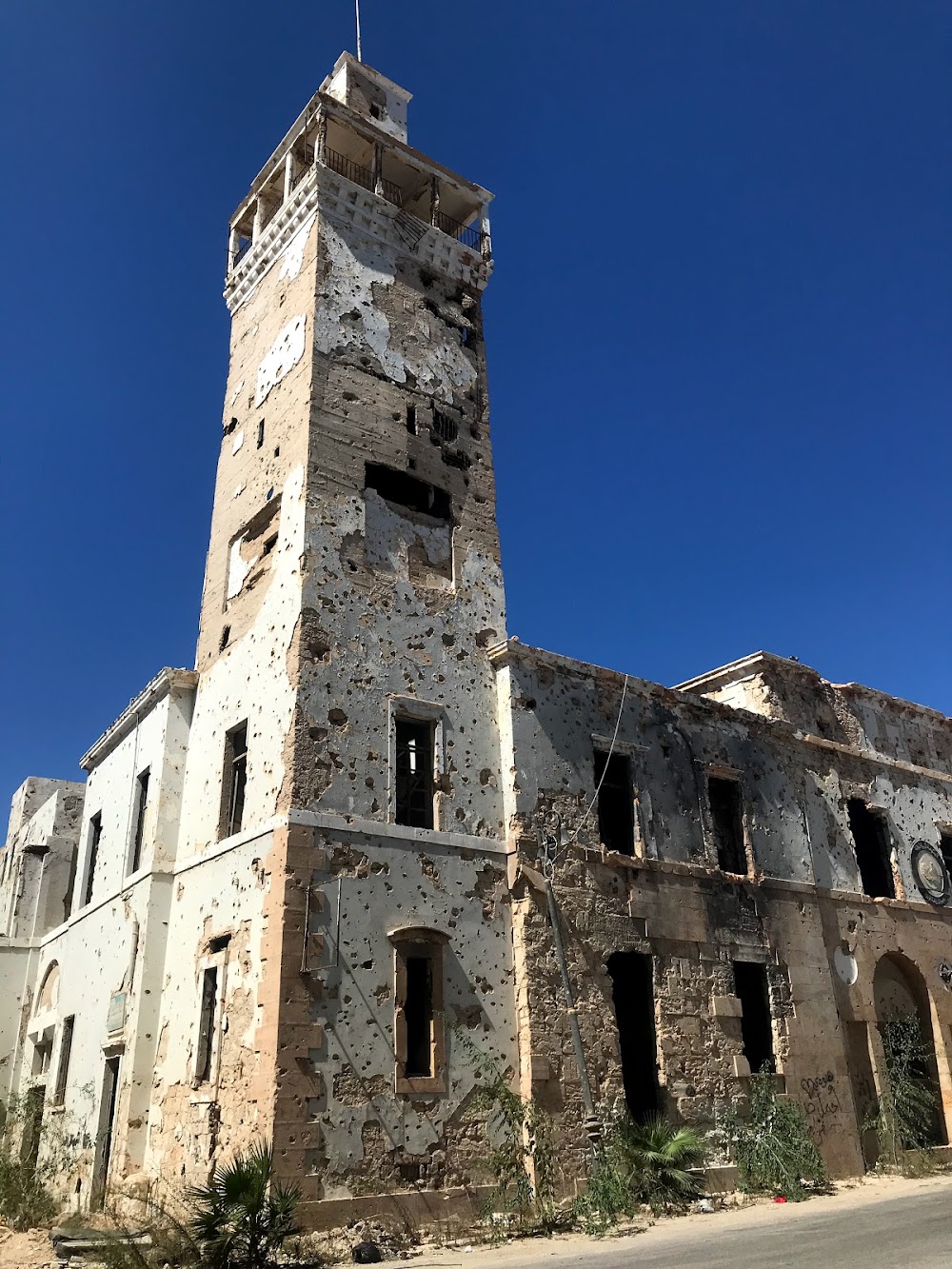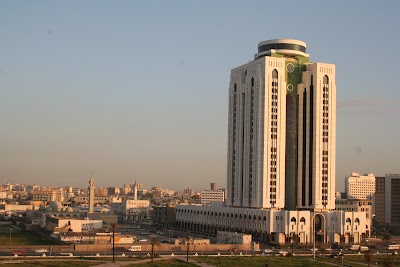Libyan Independence Museum (متحف الاستقلال الليبي)
Overview
The Museum of Libya: A Symbol of Resilience and Heritage
The Museum of Libya, also known as the Libyan Independence Museum, proudly embodies the nation's rich heritage and the enduring struggle for freedom experienced by the Libyan people. Nestled in the vibrant city of Benghazi, this remarkable museum serves as a poignant reminder of Libya's journey from colonization to independence, captivating visitors with its compelling narrative.
A Vision of Preservation
The museum was conceived from a strong desire to preserve and celebrate Libya's extensive history, culture, and achievements. Construction began in the early 2000s, during a period marked by a renewed interest in national identity and heritage. Architects and historians collaborated to design a building that harmonizes modern elements with traditional Libyan architectural styles, creating a space that is both educational and inspiring.
Architectural Marvel
The museum's exterior is a breathtaking sight, characterized by a facade adorned with intricate designs inspired by ancient Libyan art and architecture. Local materials like limestone and marble enhance the authenticity and visual appeal of the structure. Inside, the architectural layout features spacious galleries and large, open courtyards, providing an immersive experience for every visitor.
Exhibits of Historical Significance
As visitors explore the museum, they will find several sections dedicated to various aspects of Libyan history. One of the standout exhibits focuses on the fight for independence, showcasing artifacts and documents from the Italian colonization period. This section highlights the significant events and figures that played vital roles in achieving freedom, including original letters, government documents, and personal belongings of key historical figures.
Celebrating Cultural Heritage
Another important area of the museum is devoted to Libya's rich cultural heritage. Here, visitors can marvel at an extensive collection of traditional Libyan crafts, including textiles, pottery, and jewelry. Interactive displays and multimedia presentations offer deeper insights into the diverse cultural influences that have shaped Libya over the centuries, enriching the visitor experience.
Tribute to King Idris
A special section of the museum honors the era of King Idris, Libya's first and only king. This exhibit features portraits, clothing, and the king's personal effects, providing a glimpse into the life and reign of one of Libya's most significant leaders. Moreover, the museum houses a comprehensive library and research center, offering scholars access to a wealth of historical documents and publications related to Libyan history.
Overcoming Challenges
The journey to complete the museum was not without its challenges. Political instability and economic difficulties posed significant obstacles along the way. However, the dedication and perseverance of the Libyan people, coupled with support from international partners, made the realization of this project possible. Officially opened to the public in 2008, the museum quickly became a cultural hub for both locals and tourists.
Engagement and Cultural Exchange
In addition to its permanent exhibits, the museum regularly hosts temporary exhibitions, educational programs, and cultural events. These initiatives aim to engage the community and foster a deeper appreciation of Libya's heritage. Furthermore, the museum collaborates with cultural institutions worldwide, promoting cultural exchange and mutual understanding.
A Living Monument
The Museum of Libya is more than just a repository of artifacts; it stands as a living monument that narrates the story of a nation's resilience and determination. Through its thoughtfully curated exhibits and educational initiatives, the museum plays a crucial role in preserving Libya's history and inspiring future generations.
A Profound Connection
Visitors to the museum leave with a profound sense of connection to Libya's past, gaining a deeper appreciation for the sacrifices made by those who fought for the country’s independence. The museum serves as a testament to the enduring spirit of the Libyan people and their unwavering commitment to preserving their cultural heritage.








